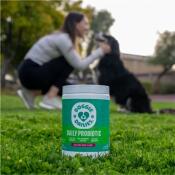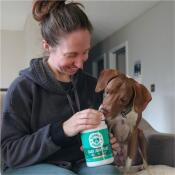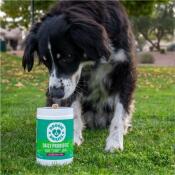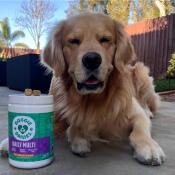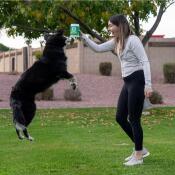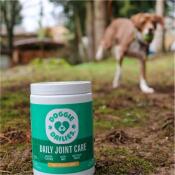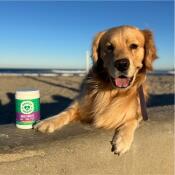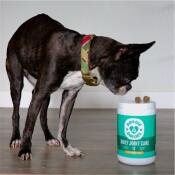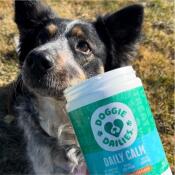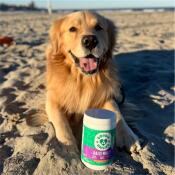Not every home is the right for an Australian Shepherd. They're too energetic to be comfortable in an apartment and can become hyperactive or even destructive if they do not receive enough attention or exercise. They do best with a large enclosed yard or space to roam free in the country.
Nutrition
A diet with moderate fat content ensures the Aussie double coat remains healthy, while a high-protein diet keeps muscles strong. Aussies need more calories than less active breeds.
Exercise
Herding dogs like Aussies need at least 30 minutes of exercise daily. Working dogs naturally burn off steam, and family pets can join walks/hikes and runs, tussle in the backyard, or play Frisbee. You can also consider agility and obedience activities, which intelligent Aussies love!
Training
If you cannot train your Australian Shepherd and assert dominance, it can become unruly. That's the risk when any intelligent breed becomes bored, and the Aussie is undoubtedly clever. However, if you're dedicated, you can tap into your Aussie's natural intelligence and strengthen your bond through training.
- Start by socializing your Aussie pup starting around 8 weeks old. Crate training your Aussie helps with sleep and when you're not home. Start with basic commands such as "Sit" or "Shake" before moving onto more complex commands that are broken up into smaller parts.
Grooming
That medium coat allows Aussies to be equally comfortable in both hot and cold climates, and it requires only a moderate amount of grooming for most of the year. As long as you brush your dog weekly and prepare for seasonal blowouts, you won't need to deal with matted fur. Nevertheless, potential owners who cannot dedicate the time to weekly brushing (and more as the seasons change) may want to look at a different breed.
Health Concerns
Aussies are generally healthy dogs. However, like any breed, they can develop certain health issues. Common problems include hip and elbow dysplasia, heart disease, deafness, allergies, epilepsy, osteochondritis dissecans, sensitivity to drugs, and eye problems. The breed can also become infected by Collie nose, a type of immune reaction.


